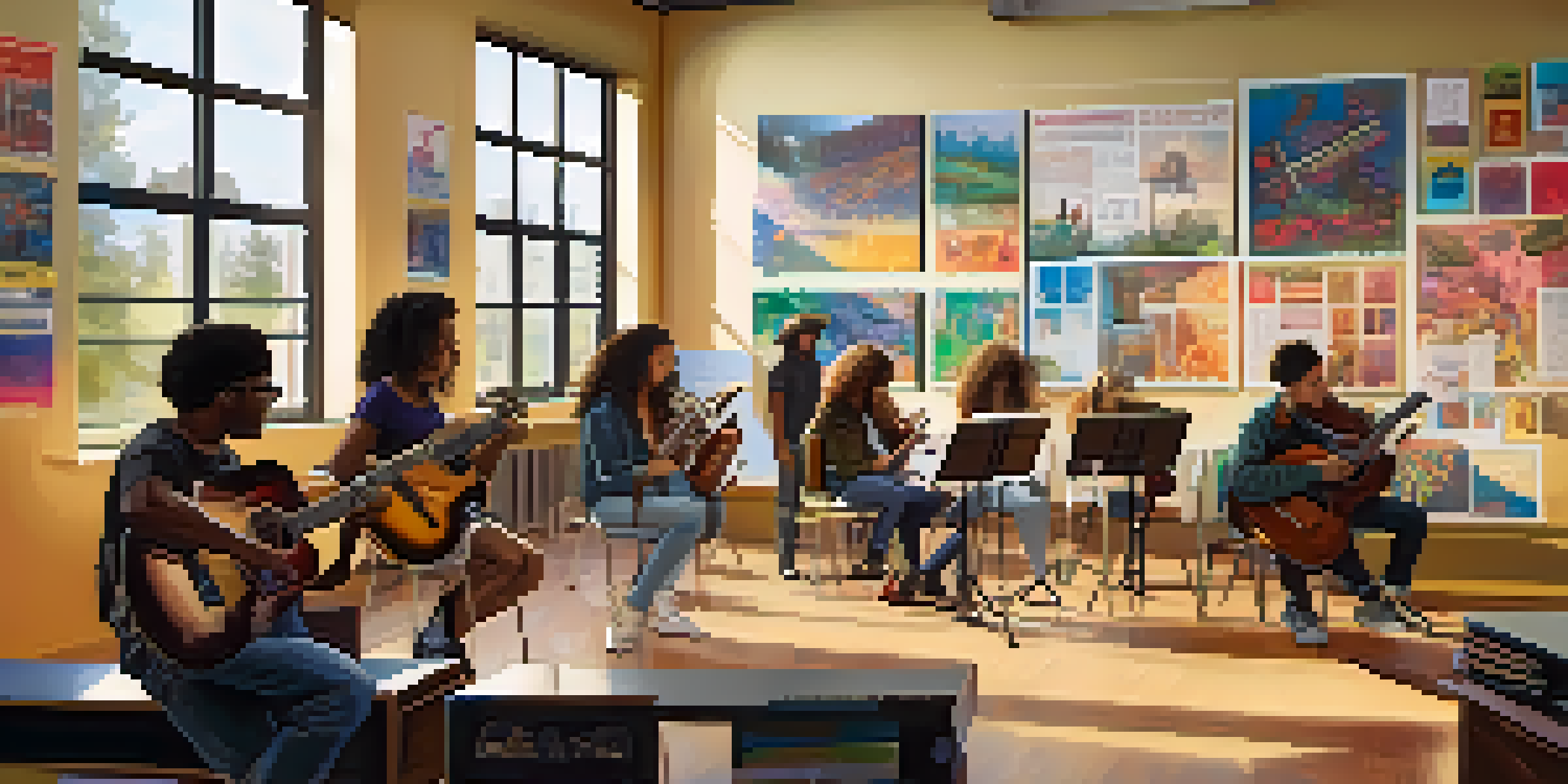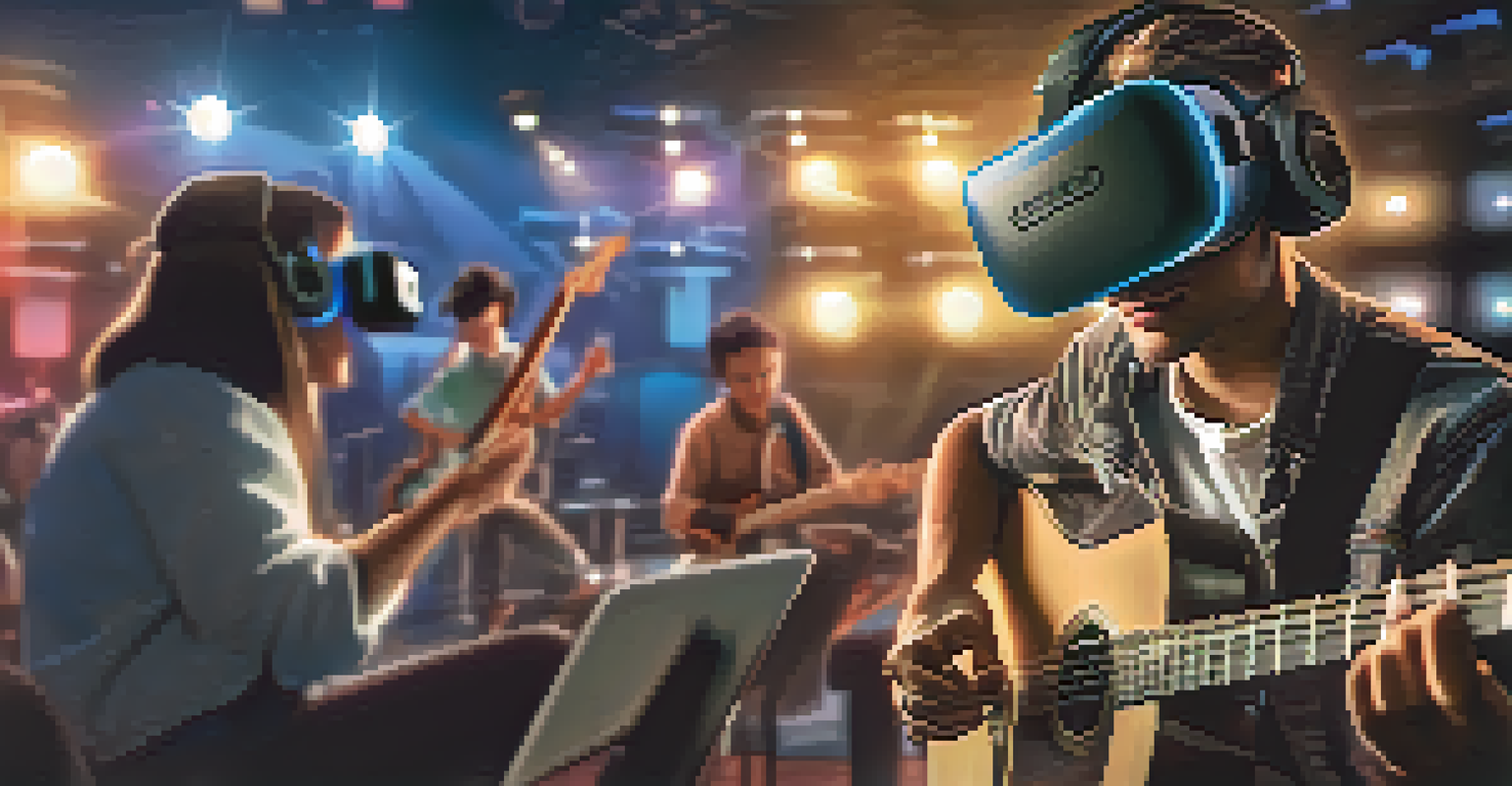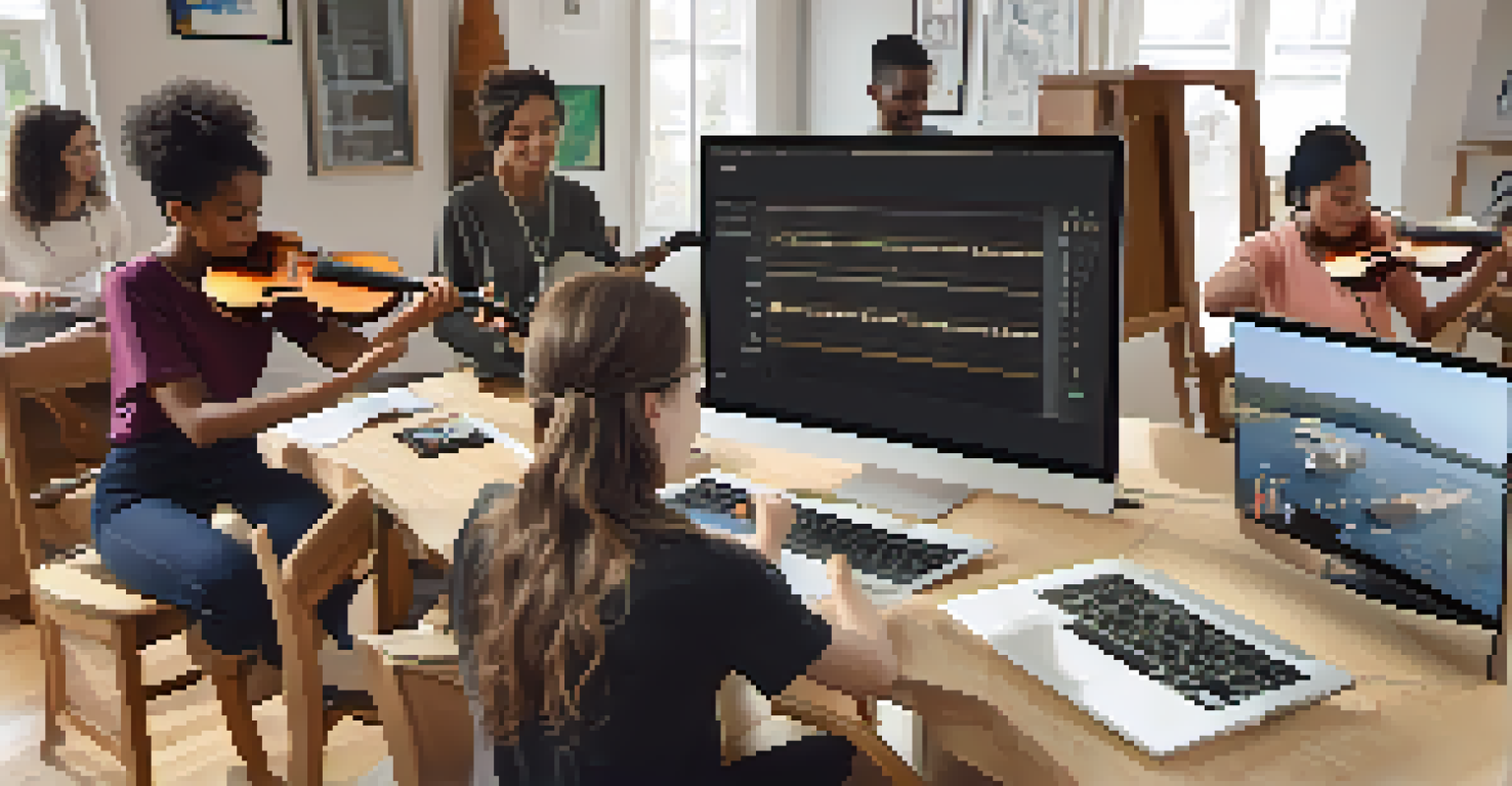Future of Live Music Education and Training Programs

The Evolving Landscape of Music Education
In recent years, the landscape of music education has undergone significant changes. With the rise of technology and digital platforms, traditional classrooms are now complemented by online courses and virtual workshops. This evolution allows aspiring musicians to access a wealth of resources from anywhere in the world, breaking geographical barriers and making education more inclusive.
Education is the most powerful weapon which you can use to change the world.
Furthermore, music education is increasingly focused on fostering creativity and collaboration. Programs are adapting to include group projects and live performances, which not only engage students but also mimic real-world scenarios they will encounter in their careers. This hands-on approach helps students develop essential skills like teamwork and communication, which are crucial in the music industry.
As we look to the future, it's clear that music education will continue to adapt to the needs of students and the industry. Innovative teaching methods and the integration of technology will play significant roles in shaping how music is taught and learned, ensuring that education remains relevant and effective.
Technology's Role in Music Training
Technology has revolutionized music training, making it more accessible and engaging. Tools like apps for learning instruments, software for composing music, and online platforms for performance feedback are now commonplace. These resources allow students to practice at their own pace and receive immediate feedback, which can enhance their learning experience.

Moreover, virtual reality (VR) and augmented reality (AR) are beginning to enter the music education space, providing immersive learning experiences. Imagine a student practicing guitar while being guided by a virtual instructor in a simulated environment! This kind of interactive learning can boost motivation and retention, making the educational process more enjoyable.
Tech Transforms Music Education
Technology is reshaping music training with tools like apps and virtual reality, making learning more engaging and accessible.
As technology continues to advance, we can expect even more innovative tools to emerge. The integration of artificial intelligence (AI) in music education could personalize learning experiences, adapting to individual student needs and helping them progress more efficiently.
The Rise of Online Music Programs
Online music programs have surged in popularity, offering flexible options for learners of all ages. Students can choose from a wide array of courses, from music theory to specific instrument training, all from the comfort of their homes. This flexibility is particularly beneficial for those balancing other commitments, such as work or family responsibilities.
The beautiful thing about learning is that no one can take it away from you.
These programs often feature interactive elements, such as live sessions with instructors and peer collaboration opportunities. This combination of flexibility and engagement helps students stay motivated and connected, mirroring the social aspects of traditional music education. Additionally, many online platforms provide access to a global community, allowing students to connect with peers and professionals worldwide.
As the demand for online learning continues to grow, educational institutions will likely expand their offerings. This could lead to a more diverse range of programs and specializations, catering to various interests within the music field.
Emphasis on Diversity and Inclusion
The future of live music education is increasingly focused on promoting diversity and inclusion. Institutions are recognizing the importance of representing various musical genres, cultures, and backgrounds in their curricula. This shift not only enriches the learning experience but also helps students appreciate the vastness of the music world.
By embracing a broader range of musical styles, educators can inspire students to explore their unique identities as musicians. This can lead to a more authentic expression of creativity, as students draw from diverse influences. The emphasis on inclusivity ensures that aspiring musicians from all walks of life feel welcome and valued in the educational space.
Emphasis on Collaboration
Modern music education prioritizes collaborative learning environments, reflecting the teamwork essential in the music industry.
As music education continues to evolve, fostering an inclusive environment will be paramount. This commitment to diversity will help shape a more equitable music industry, where everyone's voice is heard and celebrated.
Collaborative Learning Environments
Collaborative learning environments are becoming a hallmark of modern music education. Rather than solely focusing on individual skill development, programs are encouraging students to work together on projects and performances. This approach mirrors the collaborative nature of the music industry, where teamwork is essential for success.
In these settings, students can share their ideas, learn from one another, and develop valuable interpersonal skills. Collaborative initiatives, such as group songwriting or ensemble performances, foster a sense of community and belonging among students. These experiences not only enhance their musical abilities but also prepare them for the realities of working with others in the field.
As we look ahead, collaboration will likely play an even more significant role in music education. By emphasizing teamwork and communication, programs can better equip students to thrive in the dynamic world of live music.
Industry Partnerships and Networking Opportunities
Building connections within the music industry is crucial for aspiring musicians, and educational programs are recognizing this importance. Many institutions are forming partnerships with industry professionals, providing students with valuable networking opportunities. These relationships can lead to internships, mentorships, and even job placements after graduation.
Workshops and masterclasses led by industry experts allow students to gain insights into the music business and learn from real-world experiences. These interactions not only enhance their education but also help students build confidence as they prepare to enter the workforce. Networking is a vital component of a successful music career, and educational programs are starting to prioritize it more than ever.
Focus on Diversity and Inclusion
Music education is increasingly promoting diversity and inclusion, enriching curricula and helping students connect with various musical cultures.
As music education continues to evolve, the integration of industry partnerships will remain a key focus. This approach will ensure that students are well-prepared to navigate the complexities of the music industry and establish meaningful connections.
The Importance of Lifelong Learning in Music
The concept of lifelong learning is gaining traction in the music education sphere. As the music industry evolves, musicians must adapt and continuously improve their skills. Programs that promote ongoing education encourage students to stay curious and seek out new learning opportunities throughout their careers.
Workshops, webinars, and online courses can provide musicians with avenues to refine their craft and explore new genres or techniques. This commitment to lifelong learning helps artists remain relevant and innovative in an ever-changing landscape. It’s not just about mastering an instrument; it’s about growing as a musician and adapting to new trends.

As we move into the future, fostering a culture of lifelong learning will be essential for the growth of both individual musicians and the industry as a whole. By embracing this mindset, musicians can continue to thrive and contribute to the vibrant world of live music.